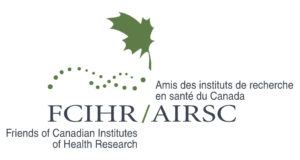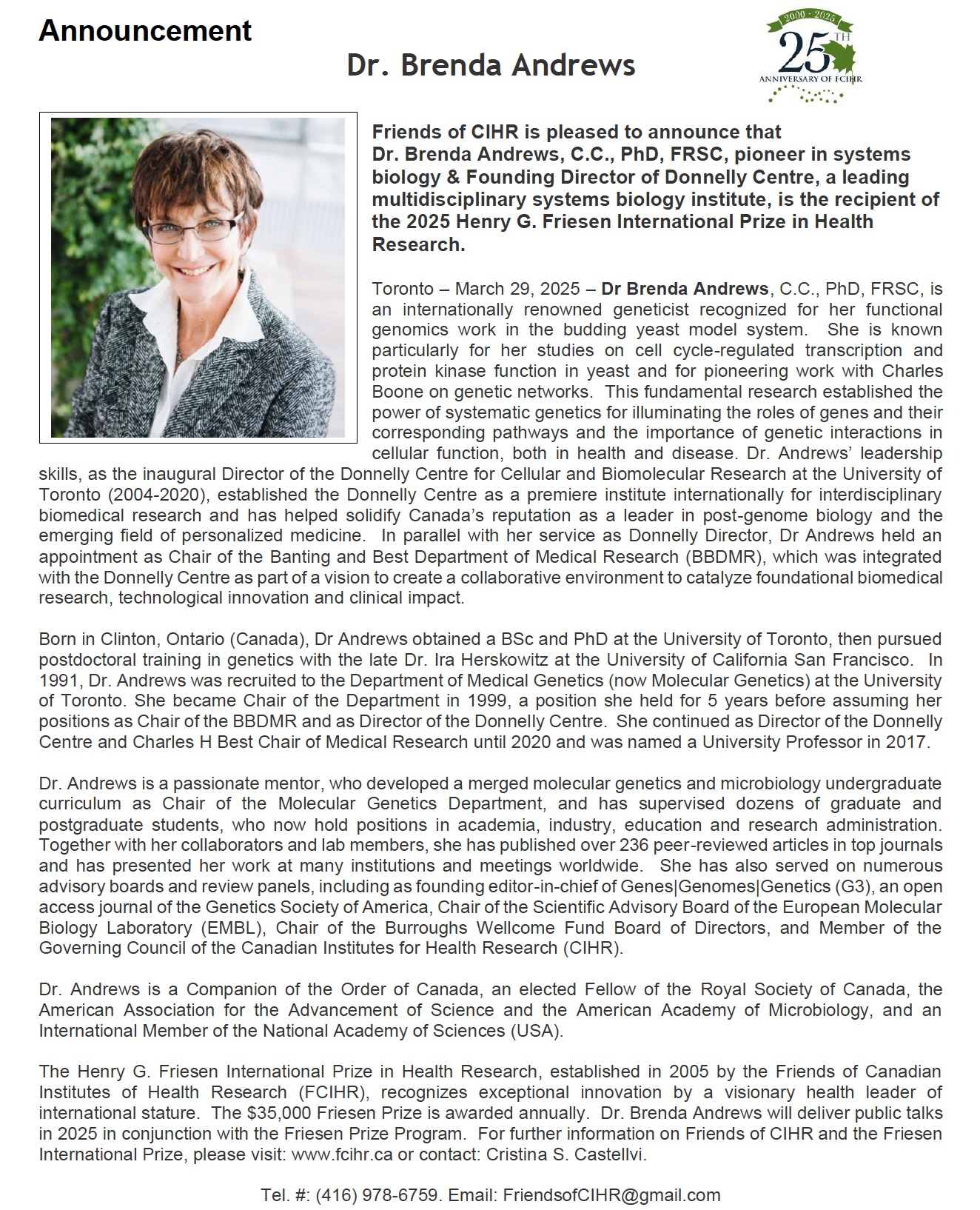 Announcement – Dr. Brenda Andrews – 2025 Friesen Prize
Announcement – Dr. Brenda Andrews – 2025 Friesen Prize
French Translation to follow.
DESCRIPTION – FRIENDS OF CIHR
 Friends of CIHR (FCIHR) was created to promote the value of health research and establish community-based partnerships. Since 2000, it has specifically supported the goals and initiatives of the Canadian Institutes of Health Research (CIHR) and has expanded its role to represent all health disciplines. The 15-person Board of Directors represents a membership active in universities, hospitals, voluntary organizations, community groups and agencies, as well as some private corporations. In addition, Friends of CIHR promotes research funding with all levels of government. FCIHR organizes annual educational symposia and publishes the proceedings for wide distribution. The Video History of Medicine in Canada is an innovative program conceived by the group. Friends of CIHR is a non-profit, non-governmental, incorporated organization.
Friends of CIHR (FCIHR) was created to promote the value of health research and establish community-based partnerships. Since 2000, it has specifically supported the goals and initiatives of the Canadian Institutes of Health Research (CIHR) and has expanded its role to represent all health disciplines. The 15-person Board of Directors represents a membership active in universities, hospitals, voluntary organizations, community groups and agencies, as well as some private corporations. In addition, Friends of CIHR promotes research funding with all levels of government. FCIHR organizes annual educational symposia and publishes the proceedings for wide distribution. The Video History of Medicine in Canada is an innovative program conceived by the group. Friends of CIHR is a non-profit, non-governmental, incorporated organization.
Les Amis des Instituts de recherche en santé du Canada (AIRSC) est un organisme créé dans le but de promouvoir la valeur de la recherche en santé et d’établir des partenariats communautaires. Depuis 2000, l’organisme a expressément appuyé les objectifs et les initiatives des Instituts de recherche en santé du Canada (IRSC) et a élargi son rôle afin de représenter toutes les disciplines de la santé. Le conseil d’administration, comprenant 15 membres, représente des adhérents qui œuvrent dans des universités, des hôpitaux, des organismes bénévoles, des groupes et organismes communautaires et des sociétés privées. En plus de promouvoir le financement de la recherche à tous les niveaux de gouvernement, les AIRSC présentent chaque année des colloques pédagogiques et en publient les procès-verbaux. L’Histoire de la médecine au Canada est un programme novateur réalisé en collaboration par le groupe. Les Amis des IRSC est un organisme non gouvernemental sans but lucratif constitué en personne morale.




